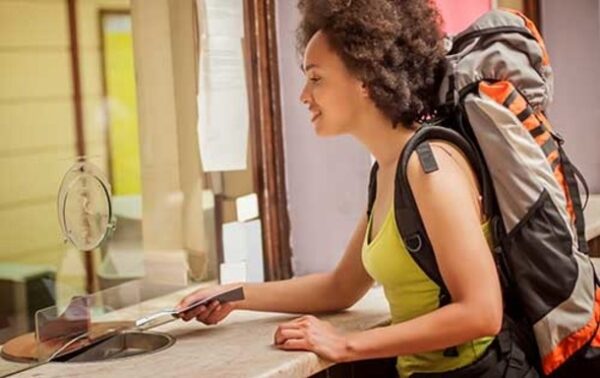Our last article gave example phrases you could use when asking for information while travelling. We’ll now give examples you can use when asking for things, such as seats or receipts.
To ask for something, use Can I have … ? or Could I have … ?. To be polite, use please at the beginning or end of the question.
Can I have a train timetable, please?
Can I have a ticket to Wellington, please?
Could I have two seats together, please?
Could I have a return ticket to Brighton, please?
You can also ask for something by using I’d like … . Again, to be polite, use please at the end.
I’d like two seats, please.
I’d like a receipt, please.
I’d like an aisle seat, please
If you want to find out if something is available, use Do you have … ?.
Do you have a map of the town centre?
Do you have any smaller cars to hire?
Excuse me, do you have any bus timetables?
If you are asking someone if they can do something for you, you should use Can you … ? or Could you … ?. Could you … ? is slightly more polite and formal than Can you … ?. To be polite, you can use please at the beginning or end of these sentences.
Can you take us to the Saint-Antoine hotel, please?
Can you stop here, please?
Please can you show us where it is on the map?
Could you write the address for me, please?
Could you show us where it is?
Could you give me the number, please?
Could you give us directions, please?
When you ask for something, you can simply name what you want, making sure you finish the sentence with please.
A single to Glasgow, please.
A map of the underground, please.
A window seat, please.
Three returns to Montreal, please.
Two travel cards, please.
Useful words
a return ticket a ticket for a journey to a place and back again
a credit card a plastic card that you use to buy something and pay for it later
a timetable a list of the times when trains, buses or planes arrive and depart
a seat something that you can sit on
a receipt a piece of paper that shows you have received goods or money from someone
an aisle a long, narrow passage where people can walk between rows of seats
a map a drawing of a particular area, such as a city or a country, that shows things like mountains, rivers and roads
an address the number of the building, the name of the street, and the town or city where you live or work
directions instructions that tell you how to get somewhere
So how do you express if you like or dislike something? Our next article will explain how!




collins_dictionary_official
The home of living language. #wotd #wordlovers #collinsdictionary
Read our word of the week definitions and blog posts: